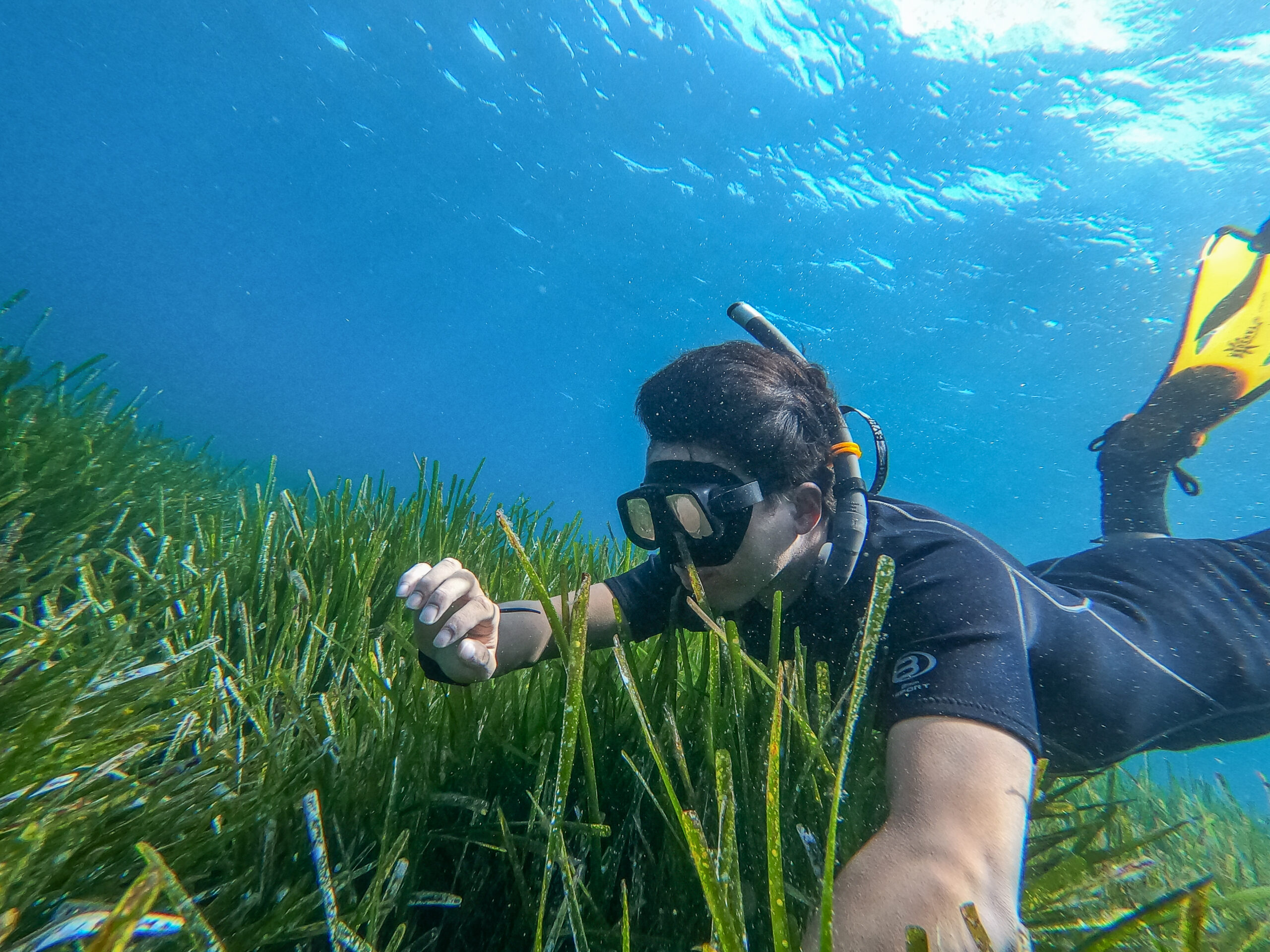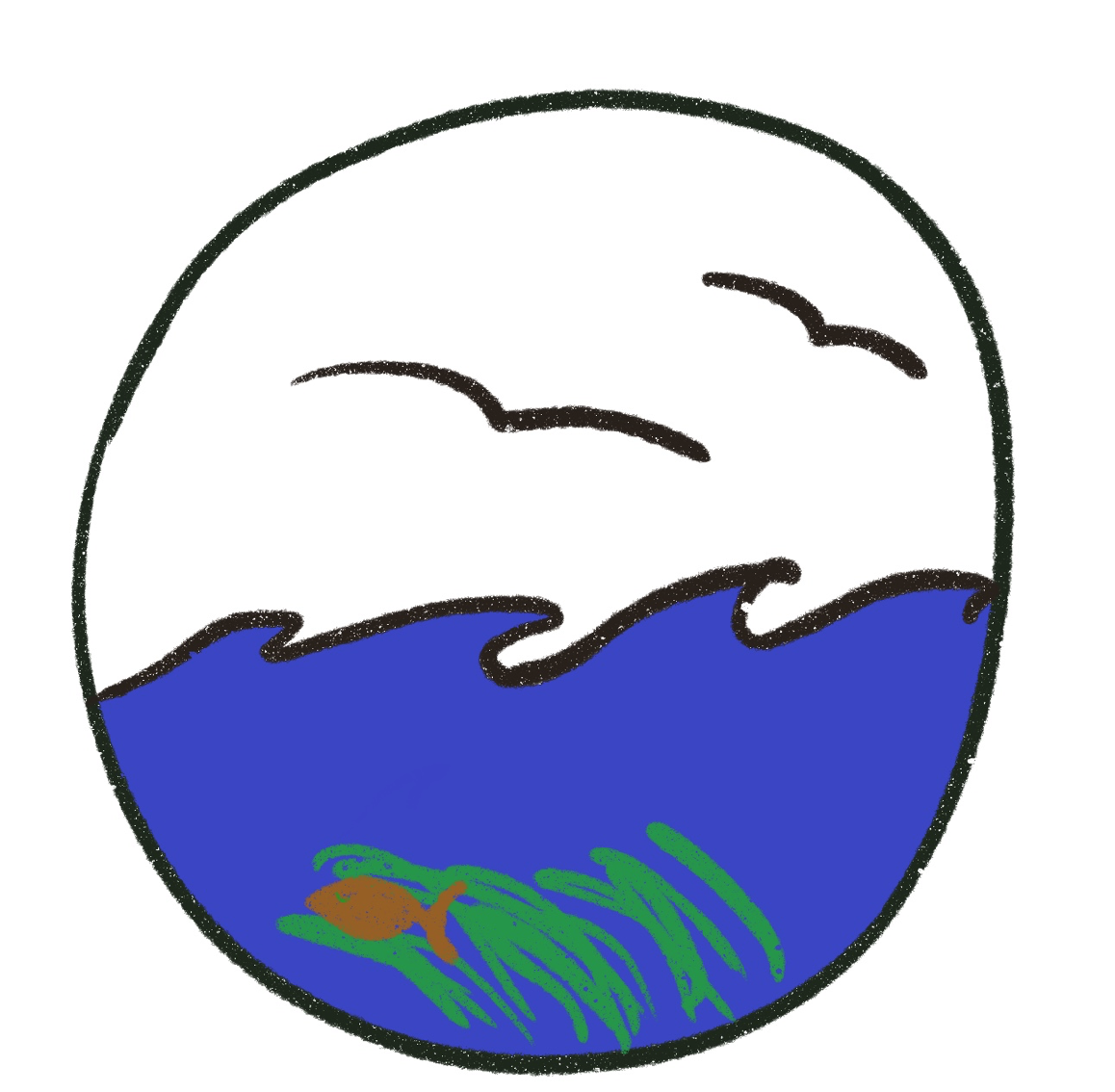Project Description:
“Posidonia Gardeners” proposes a 1-month citizen science sailing campaign dedicated to Posidonia oceanica around the Mediterranean’s largest island – Sicily, to protect and restore the seagrass Posidonia oceanica, a keystone species of the Mediterranean Sea. The goal of this campaign is to extend the citizen science efforts of Project Manaia (PM) in the region of Sicily by involving local entities in data collection as well as hands-on replanting efforts on Posidonia oceanica to achieve a bigger impact and activate a larger community of professional (PS) and citizen scientists (CS).
Project Type: Sustaining
Theme: Healthy Planet, Sea Grass
Mentor: Ilídio André Costa
Seagrass and Citizen Science in Italy and Malta
Posidonia Gardeners is a citizen science project that aims to involve citizens in re/planting seagrass while doing health assessments to improve the worsening situation of Posidonia oceanica. We engage with people from different age groups and different backgrounds to join our project as well as scientists who are coordinating the data collection onboard.
During September we traveled through Italy and Malta. While sailing we covered the regions of Sicily, the Aeolian islands, Malta, and Gozo. We educated our CS team onboard about seagrass, to collect data and understand its value in the Mediterranean ecosystem.
Simultaneously, we visited dive centers along the way and engaged with them through presentations. Through hands-on experiences and examples, we tried to educate local dive centers and their citizen students about the importance of this species and its connection to the environment. We hope that the information explained to them about seagrass will be passed on to their students, enlarging our Posidonia Gardeners network.


Posidonia oceanica -seagrass- is an endangered endemic species of the Mediterranean Sea. A decrease in abundance has been observed in the past decades. It is the main habitat for fish, and approximately 30% of the species in the Mediterranean Sea spend at least a part of their life in a seagrass meadow, making it the biggest nursery in our sea.
From a different perspective, meadows are one of the biggest carbon sinks, allowing up to 112tn of blue carbon storage yearly in the Mediterranean Sea alone. Last but equally important, it helps slow coastal erosion protecting the coastline of the surrounding countries. Thus we could imagine the consequences of losing part of those vital meadows. The biodiversity of the Mediterranean Sea will soon be vanishing if no action is taken.
IMPETUS provided educational and financial support to our project to continue during this month. It helped continue our vision and reach out to new CS while enlarging our horizons. We learned a lot about documenting our work efficiently and respectfully to the participant’s personal data.
Finally, we had the chance to get in touch with other projects that have the same visions as us and collaborate for bigger-scale research in the future. Through citizen science, collaboration, and education, we aim to inspire a community dedicated to marine conservation. Together, we will protect and restore Posidonia oceanica, ensuring a brighter future for the Mediterranean and beyond.
Our Posidonia Gardeners project will continue in the coming years. With the help of IMPETUS and the new knowledge we gained, we will keep trying to engage with people. We believe in unity, bringing together scientists, professionals, and citizen scientists to work collectively towards a common goal: the preservation of our marine heritage.

With this, we hope to continue spreading our knowledge and data collection to different parts of the Mediterranean Sea. We will encourage participants to elaborate on older data and create trends between them to monitor the abundance around the Mediterranean Sea.
Posidonia Gardeners – Video
Image credits: Marc Bielefeld



